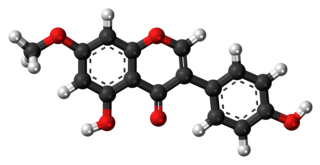
Entropy is a scientific concept that is most commonly associated with a state of disorder, randomness, or uncertainty. The term and the concept are used in diverse fields, from classical thermodynamics, where it was first recognized, to the microscopic description of nature in statistical physics, and to the principles of information theory. It has found far-ranging applications in chemistry and physics, in biological systems and their relation to life, in cosmology, economics, sociology, weather science, climate change, and information systems including the transmission of information in telecommunication.

The second law of thermodynamics is a physical law based on universal empirical observation concerning heat and energy interconversions. A simple statement of the law is that heat always flows spontaneously from hotter to colder regions of matter. Another statement is: "Not all heat can be converted into work in a cyclic process."

The Montreal Biodome is a museum of enclosed ecosystems located at Olympic Park in the Mercier–Hochelaga-Maisonneuve borough of Montreal, Quebec, Canada, that allows visitors to walk through replicas of four ecosystems found in the Americas.

A thermodynamic system is a body of matter and/or radiation separate from its surroundings that can be studied using the laws of thermodynamics.

The laws of thermodynamics are a set of scientific laws which define a group of physical quantities, such as temperature, energy, and entropy, that characterize thermodynamic systems in thermodynamic equilibrium. The laws also use various parameters for thermodynamic processes, such as thermodynamic work and heat, and establish relationships between them. They state empirical facts that form a basis of precluding the possibility of certain phenomena, such as perpetual motion. In addition to their use in thermodynamics, they are important fundamental laws of physics in general and are applicable in other natural sciences.

Terminalia chebula, commonly known as black- or chebulic myrobalan, is a species of Terminalia, native to South Asia from Pakistan, India and Nepal east to southwest China (Yunnan), and south to Sri Lanka, Malaysia, and Vietnam.
In baseball, isolated power or ISO is a sabermetric computation used to measure a batter's raw power. One formula is slugging percentage minus batting average.

Prunetin is an O-methylated isoflavone, a type of flavonoid. It has been isolated for the first time by Finnemore in 1910 in the bark of Prunus emarginata. Prunetin isolated from pea roots can act as an attractant for Aphanomyces euteiches zoospores. It is also an allosteric inhibitor of human liver aldehyde dehydrogenase.
Virgibacillus is a genus of Gram-positive, rod-shaped (bacillus) bacteria and a member of the phylum Bacillota. Virgibacillus species can be obligate aerobes, or facultative anaerobes and catalase enzyme positive. Under stressful environmental conditions, the bacteria can produce oval or ellipsoidal endospores in terminal, or sometimes subterminal, swollen sporangia. The genus was recently reclassified from the genus Bacillus in 1998 following an analysis of the species V. pantothenticus. Subsequently, a number of new species have been discovered or reclassified as Virgibacillus species.
Nitratireductor is a genus of bacteria.
Nitratireductor aquibiodomus is a Gram-negative, rod-shaped bacteria from the genus of Nitratireductor which was isolated from a marine denitrification system in Canada.
Nitratireductor aquimarinus is a Gram-negative, aerobic bacteria from the genus of Nitratireductor which was isolated from Skeletonema costatum from the Sea of Japan.
Nitratireductor basaltis is a Gram-negative, oxidase- and catalase-positive bacteria from the genus of Nitratireductor which was isolated from black sand from the Soesoggak beach on the Jeju Island in South Korea.
Nitratireductor indicus is a Gram-negative, oxidase- and catalase-positive mobile bacteria from the genus of Nitratireductor which was isolated from deep-sea water of the Indian Ocean.
Nitratireductor lucknowense is a bacterium from the genus of Nitratireductor which was isolated from pesticide contaminated soil in Lucknow in India.
Nitratireductor pacificus is a Gram-negative and motile bacteria from the genus of Nitratireductor which was isolated from enriched sediment from the Pacific Ocean.
Erythrobacteraceae is a bacterium family in the order of Sphingomonadales.

Apparicine is a monoterpenoid tricyclic indole alkaloid. It is named after Apparicio Duarte, a Brazilian botanist who studied the Aspidosperma species from which apparicine was first isolated. It was the first member of the vallesamine group of indole alkaloids to be isolated and have its structure established, which was first published in 1965. It has also been known by the synonyms gomezine, pericalline, and tabernoschizine.
Nitratireductor lacus is a Gram-negative bacteria from the genus of Nitratireductor which has been isolated from the Yuncheng Salt Lake in China.
Isolation Forest is an algorithm for data anomaly detection using binary trees. It was developed by Fei Tony Liu in 2008. It has a linear time complexity and a low memory use, which works well for high-volume data. It is based on the assumption that because anomalies are few and different from other data, they can be isolated using few partitions. Like decision tree algorithms, it does not perform density estimation. Unlike decision tree algorithms, it uses only path length to output an anomaly score, and does not use leaf node statistics of class distribution or target value.





